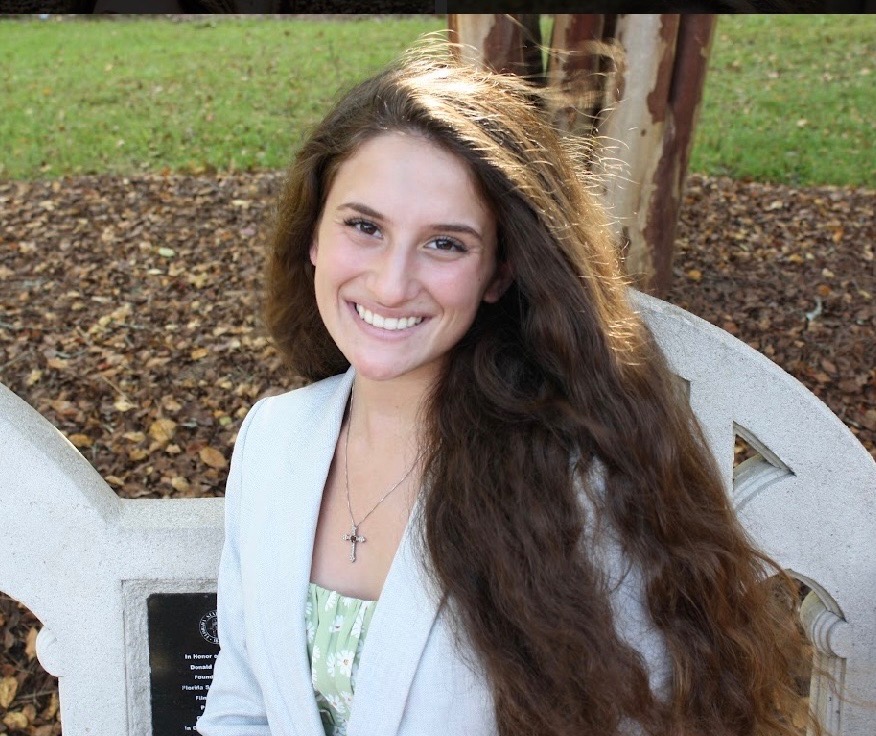Research Symposium
22nd annual Undergraduate Research Symposium
Karina Frey Poster Session 5: 1:30-2:15/Poster #9

BIO
Hello everyone! My name is Karina Frey, and I am a second year student majoring in Cell and Molecular Neurosciences! I am from Tampa, Florida and my research interests include neuropsychopathology, abnormal psychology, and microbiology! The research that I had the amazing opportunity to take part in all year constitutes most, if not all, of my research interests put into one! I am so grateful to have Austin Folger as my research mentor, and look forward to presenting an overview of autophagy and how selective autophagy receptors play a key role in the degradation of inclusion bodies that express mutated huntingtin protein found in Huntington's disease.
The clearance of mutant Huntingtin inclusion bodies through autophagy
Authors: Karina Frey, Austin FolgerStudent Major: Cell and Molecular Neuroscience
Mentor: Austin Folger
Mentor's Department: Biomedical Sciences Mentor's College: College of Medicine Co-Presenters:
Abstract
Huntington’s disease is an inherited neurodegenerative disorder characterized by personality changes, movement disorders, and cognitive decline. It is caused by the expansion of a polyglutamine tract to more than 39 copies of CAG in exon 1 of the Htt gene. This mutated huntingtin protein (mHtt) tends to form inclusion bodies in cells, which are cytotoxic. Cellular processes exist to mitigate this toxicity, one of which is autophagy. Autophagy is a process by which cells can envelop and recycle cellular contents. This can be either be non-specific, as in starvation autophagy, or specific as in selective autophagy. This experiment aims to elucidate the autophagy machinery involved in the clearance of mHtt inclusion bodies. We used various Atg deletion mutants in both the starvation and selective autophagy pathways to determine if they are required for inclusion body autophagy and vacuolar localization. We also used deletion mutants of selective autophagy receptors to determine which are required for inclusion body degradation. We have found that selective autophagy and a few selective autophagy receptors play a key role in the degradation of inclusion bodies in cells expressing mHtt.
Keywords: Huntington's disease and Autophagy

